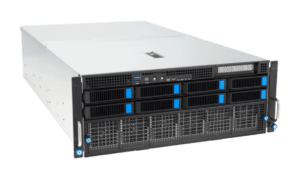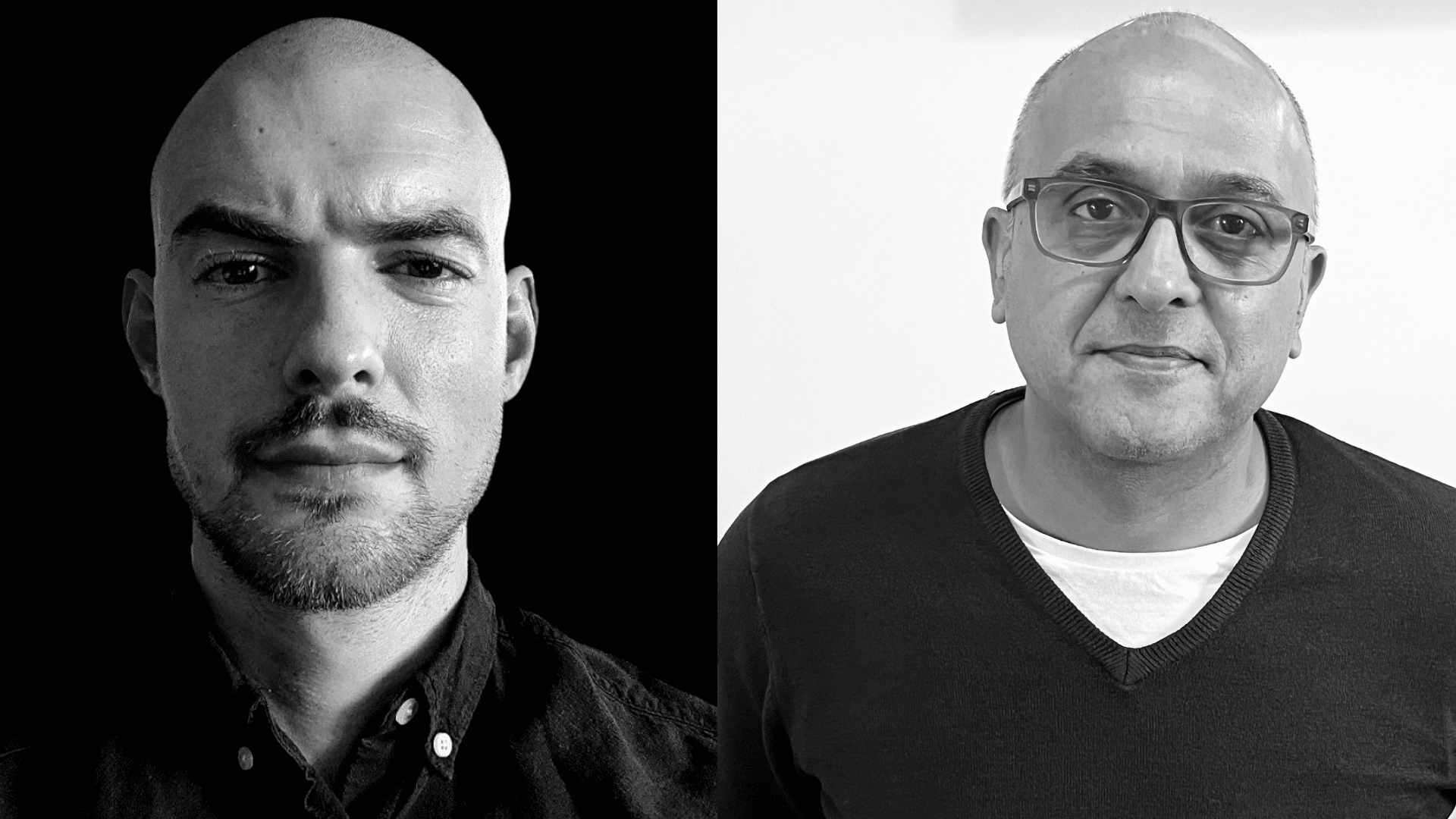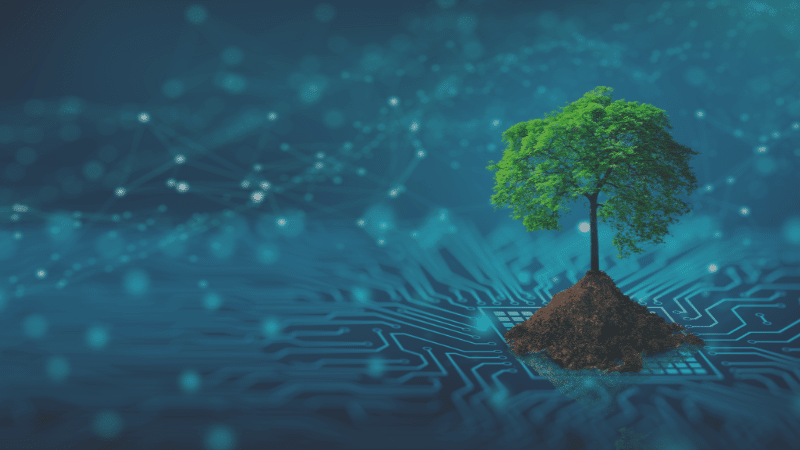Data center demand is increasing at a rapid pace. With the rise of AI and the ever-expanding range of IoT (Internet of Things) devices, how can data centers best equip themselves to manage intensifying workloads?
High-performance servers are critical for modern data centers, with select servers optimised specifically for operations. In this blog, Panchaea’s experts highlight their favourite energy-efficient servers and share best practices for selecting the right server for your workload.
Cutting-edge, top of the line servers
Thanks to our extensive partner network, Panchaea always has its finger on the pulse when it comes to the newest hardware from industry leaders such as NVIDIA, AMD, ASUS and more. Let’s jump straight into our picks for the best data center server:

ASUS ESC8000A-E12
ASUS designed its ESC8000A-E12 server to excel in AI workloads, boasting robust AMD EPYC 9004 processors with 96 Zen 4 cores. It accommodates up to eight dual-slot GPUs, NVIDIA NVLink® bridge, and NVIDIA Bluefield DPU for tailored, scalable AI performance.
The server is the ideal fit for high-density data centers thanks to its massive processing capabilities, AI-focused design, and thermal management. By offering support for multiple GPUs, including high-end GPUs like those from NVIDIA, the ESC8000A can handle AI workloads that demand substantial processing power.
The dedicated airflow paths for CPUs and GPUs prevent thermal interference, sustaining efficient cooling even in densely packed racks. Not only does this avoid overheating equipment, but it is also a big saver for data center heat management.

Gigabyte G293-Z43 (rev. AAP1)
Gigabyte’s 2U server chassis, the G293-Z43, is designed for demanding AI applications in data center server racks. It supports up to 16 single-slot Gen5 GPU cards and features a dual processor configuration based on AMD EPYC™ 9004 Series processors.
In addition to a range of technical advantages, this server provides automatic fan speed control. This intelligent system monitors heat levels and adjusts individual fan speeds accordingly. This power-efficient cooling solution helps reduce energy waste and promotes sustainable operation, contributing to overall data center sustainability while helping to save costs through optimised power usage.
Sytronix systems
Sytronix builds all systems bespoke to customers’ requirements and tunes each system for the workload the end user will be performing, commonly providing 20-40% performance gains compared to stock settings. Sytronix systems can accommodate any hardware configuration you require and are fully adaptable.
From 1U high-density dual-EPYC CPU compute servers to GPU servers with up to 16 industry-leading GPUs, Sytronix’s Engineering and CAD team ensure that all systems provide the highest density while maintaining efficient thermal management. A standard configuration for AI applications would be a minimum of dual 64-core EPYC CPUs, 512GB RAM, enterprise-class storage and 8x leading Nvidia GPUs such as A100s or A6000s. It can be fully scalable with Infiniband clustering capabilities.
All configuration customisations and workload optimisations are included with every sale for no additional cost, making Sytronix systems an excellent choice for anyone looking to achieve the highest possible hardware utilisation for their specific workload.
How do I choose the best server for my data center?
Above are some of our favourites, but the market is stacked with incredible, high-spec servers that fulfil various purposes. So, which is the right server for your data centre? To help with your decision-making, we’ve compiled a handy checklist for you to use when sifting through the multitude of server options.
Assessing performance requirements
Before you can decide on the right server for your data center, there are many things you must consider. First, explore your workloads and operational needs. Identify the server features you require, such as processing power, memory, and storage. Ensure that any potential server hardware is fully compatible with your applications and can efficiently handle the expected load.
Mitigating downtime risks
Next, you’ll want to evaluate the potential consequences of server downtime on your operations. Dedicated servers enhance data center security by avoiding data sharing, but consider the potential downtime scenarios this can invite. Operators need to calculate acceptable downtime levels based on the importance of the applications and services hosted by your servers.
Network quality considerations
You’ll also need to analyse your data center’s location in relation to users and data traffic. Your facility’s location can play a significant role in purchasing decisions. Assess hardware compatibility and bandwidth capacity. For example, if you’re utilising an outsourced data center, assess the local provider’s network quality. Operators need to validate that the promised network speed aligns with your performance demands.
Scalability planning
Scalability is at the heart of any data center hardware or software decision-making. Think about the potential applications in a multi-server environment. Pay special attention to databases; ensure they can effectively distribute workloads across multiple servers and synchronise data seamlessly. Will you need to efficiently downscale server usage during quiet periods? Identify any challenges associated with scaling applications, as these can massively impact potential server options.
Strategically aligned server choices
As mentioned earlier, server decisions directly impact data center efficiency and reliability. Consider servers that optimise power consumption, cooling efficiency, and physical space utilisation. Prioritise server models that align with your long-term growth and operational strategies.
Budget-conscious buying
It’s no secret that the global economy is experiencing a stormy period. Many businesses have seen downturns recently, so any operator should be budget-conscious when buying new hardware.
While selecting servers, ensure compatibility with the data center budget. Balance cost considerations with performance, reliability, and security requirements. Aim for a server solution with the necessary capabilities without overextending your financial resources.
Contact our team today to learn more about our data center hardware offering.



